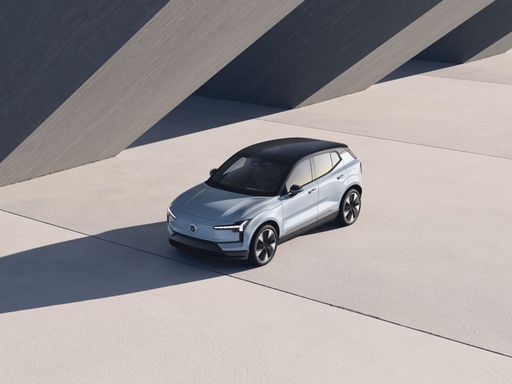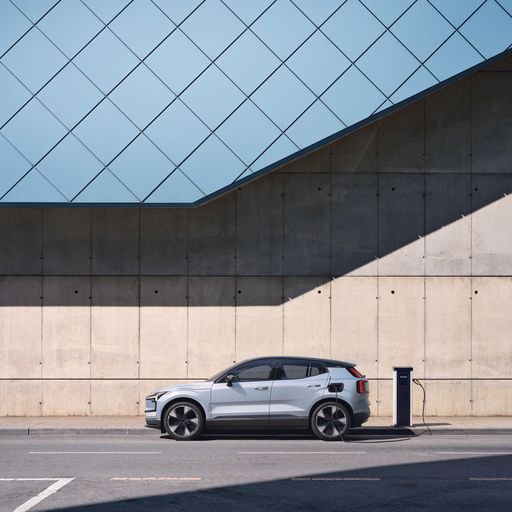Peugeot 208 vs Volvo EX30 – Which car suits you better?
Costs and Efficiency:
When it comes to price and running costs, the biggest differences usually appear. This is often where you see which car fits your budget better in the long run.
Peugeot 208 has a significantly advantage in terms of price – it starts at 20700 £, while the Volvo EX30 costs 33000 £. That’s a price difference of around 12309 £.
In terms of energy consumption, the advantage goes to the Peugeot 208: with 14.10 kWh per 100 km, it’s distinct more efficient than the Volvo EX30 with 17 kWh. That’s a difference of about 2.90 kWh.
As for range, the Volvo EX30 performs hardly perceptible better – achieving up to 476 km, about 44 km more than the Peugeot 208.
Engine and Performance:
Under the bonnet, it becomes clear which model is tuned for sportiness and which one takes the lead when you hit the accelerator.
When it comes to engine power, the Volvo EX30 has a convincingly edge – offering 428 HP compared to 156 HP. That’s roughly 272 HP more horsepower.
In acceleration from 0 to 100 km/h, the Volvo EX30 is convincingly quicker – completing the sprint in 3.60 s, while the Peugeot 208 takes 8.30 s. That’s about 4.70 s faster.
In terms of top speed, the Peugeot 208 performs slight better – reaching 200 km/h, while the Volvo EX30 tops out at 180 km/h. The difference is around 20 km/h.
There’s also a difference in torque: Volvo EX30 pulls convincingly stronger with 543 Nm compared to 270 Nm. That’s about 273 Nm difference.
Space and Everyday Use:
Whether family car or daily driver – which one offers more room, flexibility and comfort?
Both vehicles offer seating for 5 people.
In curb weight, Peugeot 208 is significantly lighter – 1165 kg compared to 1840 kg. The difference is around 675 kg.
In terms of boot space, the Peugeot 208 offers hardly perceptible more room – 352 L compared to 318 L. That’s a difference of about 34 L.
In maximum load capacity, the Peugeot 208 performs slightly better – up to 1163 L, which is about 163 L more than the Volvo EX30.
When it comes to payload, Peugeot 208 barely noticeable takes the win – 430 kg compared to 390 kg. That’s a difference of about 40 kg.
Who comes out on top?
Overall, the Volvo EX30 shows itself to be is largely superior and secures the title of DriveDuel Champion.
It convinces with the more balanced overall package and proves to be the more versatile choice for everyday use.
Costs and Consumption
View detailed analysis
Engine and Performance
View detailed analysis
Dimensions and Body
View detailed analysis
 @ Volvo Cars
@ Volvo Cars
Volvo EX30
Peugeot 208
The Peugeot 208 feels like a city-savvy fox: compact, stylish and surprisingly grown-up, with a cabin that punches above its weight and enough personality to make daily commutes a little less boring. It’s a smart pick for buyers who want chic practicality without the showroom bluster — easy to park, thrifty to run and oddly fun when the road tightens up.
details @ Peugeot / Stellantis Media
@ Peugeot / Stellantis Media
 @ Peugeot / Stellantis Media
@ Peugeot / Stellantis Media
 @ Peugeot / Stellantis Media
@ Peugeot / Stellantis Media
 @ Peugeot / Stellantis Media
@ Peugeot / Stellantis Media
Volvo EX30
The Volvo EX30 arrives as a compact electric with crisp Scandinavian design and a cheeky personality, proving you can be serious about safety and still enjoy a grin on your commute. Its cabin is cleverly packaged and delightfully easy to live with, offering smart tech and practical touches that make it feel like a grown-up's city car with a sense of fun.
details @ Volvo Cars
@ Volvo Cars
 @ Volvo Cars
@ Volvo Cars
 @ Volvo Cars
@ Volvo Cars
 @ Volvo Cars
@ Volvo Cars
 @ Volvo Cars
@ Volvo Cars
 @ Peugeot / Stellantis Media
@ Peugeot / Stellantis Media
|
 @ Volvo Cars
@ Volvo Cars
|
|
|
|
Costs and Consumption |
|
|---|---|
|
Price
20700 - 35200 £
|
Price
33000 - 49100 £
|
|
Consumption L/100km
4.5 - 5.2 L
|
Consumption L/100km
-
|
|
Consumption kWh/100km
14.1 - 15.4 kWh
|
Consumption kWh/100km
17 - 18.7 kWh
|
|
Electric Range
362 - 432 km
|
Electric Range
339 - 476 km
|
|
Battery Capacity
46 - 51 kWh
|
Battery Capacity
49 - 65 kWh
|
|
co2
0 - 117 g/km
|
co2
0 g/km
|
|
Fuel tank capacity
44 L
|
Fuel tank capacity
-
|
Dimensions and Body |
|
|---|---|
|
Body Type
Hatchback
|
Body Type
SUV
|
|
Seats
5
|
Seats
5
|
|
Doors
5
|
Doors
5
|
|
Curb weight
1165 - 1530 kg
|
Curb weight
1840 - 1960 kg
|
|
Trunk capacity
309 - 352 L
|
Trunk capacity
318 L
|
|
Length
4055 mm
|
Length
4233 mm
|
|
Width
1745 mm
|
Width
1838 mm
|
|
Height
1430 mm
|
Height
1550 - 1567 mm
|
|
Max trunk capacity
1118 - 1163 L
|
Max trunk capacity
1000 L
|
|
Payload
380 - 430 kg
|
Payload
370 - 390 kg
|
Engine and Performance |
|
|---|---|
|
Engine Type
Petrol, Electric, Petrol MHEV
|
Engine Type
Electric
|
|
Transmission
Manuel, Automatic
|
Transmission
Automatic
|
|
Transmission Detail
Manual Gearbox, Reduction Gearbox, Dual-Clutch Automatic
|
Transmission Detail
Reduction Gearbox
|
|
Drive Type
Front-Wheel Drive
|
Drive Type
Rear-Wheel Drive, All-Wheel Drive
|
|
Power HP
101 - 156 HP
|
Power HP
272 - 428 HP
|
|
Acceleration 0-100km/h
8.3 - 10.9 s
|
Acceleration 0-100km/h
3.6 - 5.7 s
|
|
Max Speed
150 - 200 km/h
|
Max Speed
180 km/h
|
|
Torque
205 - 270 Nm
|
Torque
343 - 543 Nm
|
|
Number of Cylinders
3
|
Number of Cylinders
-
|
|
Power kW
74 - 115 kW
|
Power kW
200 - 315 kW
|
|
Engine capacity
1199 cm3
|
Engine capacity
-
|
General |
|
|---|---|
|
Model Year
2023 - 2025
|
Model Year
2024 - 2025
|
|
CO2 Efficiency Class
D, A, C
|
CO2 Efficiency Class
A
|
|
Brand
Peugeot
|
Brand
Volvo
|
What drive types are available for the Peugeot 208?
The Peugeot 208 is offered with Front-Wheel Drive.
The prices and data displayed are estimates based on German list prices and may vary by country. This information is not legally binding.
